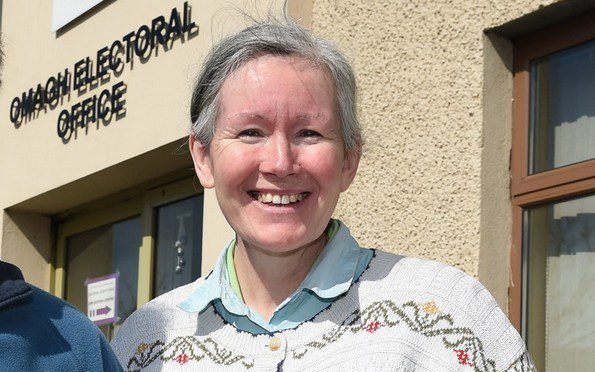
Some of you may remember my interaction with Irish Fundamentalist Susan-Anne White. (Please read Susan-Anne White Thinks I’m a Despicable, Obnoxious, Militant, Hateful Atheist. and British Fundamentalist Susan-Anne White’s List of Politically Correct Words.) Several days ago, Ms. White decided to dispense medical advice to woman who have the BRCA1 or BRCA2 gene mutation. Here’s what White had to say:
Another group of surgeons who should have joined Mr.Paterson in the dock are those who perform mastectomies on patients who do not have cancer but were told by doctors that they carry a gene which supposedly increases the risk of them developing cancer in the future.
So, some (or perhaps many) women undergo mastectomies (sometimes double mastectomies) even though they do not have cancer and may never develop cancer. They are probably more at risk of being knocked down on the road than they are at risk of having cancer in the future.
All these surgeons should be in the dock!
The FACTS from the National Cancer Institute:
How much does having a BRCA1 or BRCA2 gene mutation increase a woman’s risk of breast and ovarian cancer?
A woman’s lifetime risk of developing breast and/or ovarian cancer is greatly increased if she inherits a harmful mutation in BRCA1 or BRCA2.
Breast cancer: About 12 percent of women in the general population will develop breast cancer sometime during their lives. By contrast, according to the most recent estimates, 55 to 65 percent of women who inherit a harmful BRCA1 mutation and around 45 percent of women who inherit a harmful BRCA2 mutation will develop breast cancer by age 70 years .
Ovarian cancer: About 1.3 percent of women in the general population will develop ovarian cancer sometime during their lives. By contrast, according to the most recent estimates, 39 percent of women who inherit a harmful BRCA1 mutation and 11 to 17 percent of women who inherit a harmful BRCA2 mutation will develop ovarian cancer by age 70 years.
It is important to note that these estimated percentages of lifetime risk are different from those available previously; the estimates have changed as more information has become available, and they may change again with additional research. No long-term general population studies have directly compared cancer risk in women who have and do not have a harmful BRCA1 or BRCA2 mutation.
It is also important to note that other characteristics of a particular woman can make her cancer risk higher or lower than the average risks. These characteristics include her family history of breast, ovarian, and, possibly, other cancers; the specific mutation(s) she has inherited; and other risk factors, such as her reproductive history. However, at this time, based on current data, none of these other factors seems to be as strong as the effect of carrying a harmful BRCA1 or BRCA2 mutation.
Shock! White doesn’t know what she is talking about.
